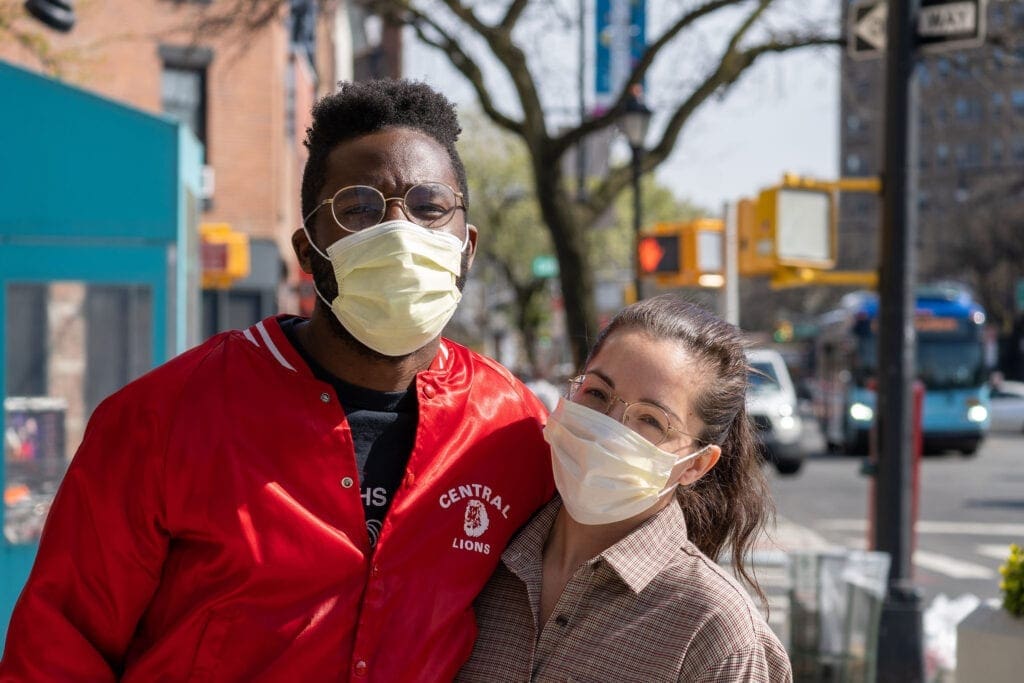COVID-19: Updates for Who’s at Risk

NOTE: This COVID-19 post is over a year old and may contain outdated information. It has been left up for archival purposes only. For the most up-to-date information on masking, vaccines, and more, visit the CDC’s website.
With each passing week, we learn more about the COVID-19 pandemic. The CDC has recently updated its list of people who are at increased risk of severe illness and those who should take extra precautions to avoid getting the virus, regardless of age.
Racial & Ethnic Minority Groups
Among those who need extra precautions are some racial and ethnic minority groups, including non-Hispanic Black persons, Hispanics and Latinos, and American Indians/Alaska Natives. These groups have experienced long-standing systemic health and social inequities, and evidence points to higher rates of hospitalization and death from COVID-19 than among non-Hispanic white persons.
According to the CDC:
- Non-Hispanic American Indian, Non-Hispanic Black people, or Alaska Native persons are five times more likely to be hospitalized than non-Hispanic white persons
- Hispanic or Latino persons are four times more likely to be hospitalized than non-Hispanic white persons
This reflects disparities in conditions that influence health outcomes. Examples of social determinants of health disparities include access to healthcare, educational opportunity, and availability of healthy food and physical activity in neighborhoods. Also, the increased risk for these groups reflects the population of essential workers who have been on the front lines of this pandemic.
People with Certain Medical Conditions
On June 25, the CDC updated the list of conditions that put people of any age at increased risk of severe illness from COVID-19:
- Chronic kidney disease
- COPD (chronic obstructive pulmonary disease)
- Immunocompromised state (weakened immune system) from solid organ transplant
- Obesity (body mass index [BMI] of 30 or higher)
- Serious heart conditions, such as heart failure, coronary artery disease, or cardiomyopathies
- Sickle cell disease
- Type 2 diabetes mellitus
The latest evidence also suggests that pregnant women and smokers might be at increased risk, as well as people who suffer from:
- Asthma
- Cystic fibrosis
- High blood pressure
- Dementia
- Liver disease
- Type 1 diabetes
- A weakened immune system
Reduce your risk of getting COVID-19
It is especially important for people at increased risk of severe illness from COVID-19, and those who live with them, to protect themselves from getting COVID-19.
The best way to protect yourself and to help reduce the spread of the virus that causes COVID-19 is to:
- Limit your interactions with other people as much as possible.
- Take precautions to prevent getting COVID-19 when you do interact with others.
If you start feeling sick and think you may have COVID-19, get in touch with your healthcare provider within 24 hours.
Protecting Those at Risk
It is important for everyone to take basic steps to slow transmission of the disease:
- Wear a cloth face covering, unless you have a medical exemption or are under the age of 5.
- Keep at least six feet away from other people whenever possible.
- Wash your hands frequently and thoroughly.
- Avoid large gatherings.
COVID-19 can infect anyone, regardless of age. Even if you are not in the high-risk category, using preventative measures can help curb the spread to those who are.
Sources
Archives
- February 2026 (1)
- December 2025 (1)
- November 2025 (2)
- September 2025 (1)
- July 2025 (2)
- June 2025 (3)
- April 2025 (2)
- January 2025 (2)
- December 2024 (1)
- September 2024 (2)
- August 2024 (2)
- July 2024 (1)
- June 2024 (1)
- February 2024 (1)
- July 2023 (1)
- March 2023 (1)
- October 2022 (1)
- September 2022 (1)
- August 2022 (1)
- July 2022 (2)
- June 2022 (2)
- May 2022 (1)
- April 2022 (4)
- March 2022 (1)
- February 2022 (1)
- January 2022 (1)
- December 2021 (4)
- November 2021 (3)
- September 2021 (2)
- August 2021 (3)
- July 2021 (2)
- June 2021 (1)
- May 2021 (2)
- March 2021 (1)
- December 2020 (6)
- November 2020 (8)
- October 2020 (4)
- September 2020 (7)
- August 2020 (3)
- July 2020 (11)
- May 2020 (2)
- April 2020 (4)
- March 2020 (1)
Categories
- Communicable Disease (5)
- Clinical Services (19)
- Clinical Servcies (1)
- Health Promotions (74)
- Emergency Preparedness (8)





